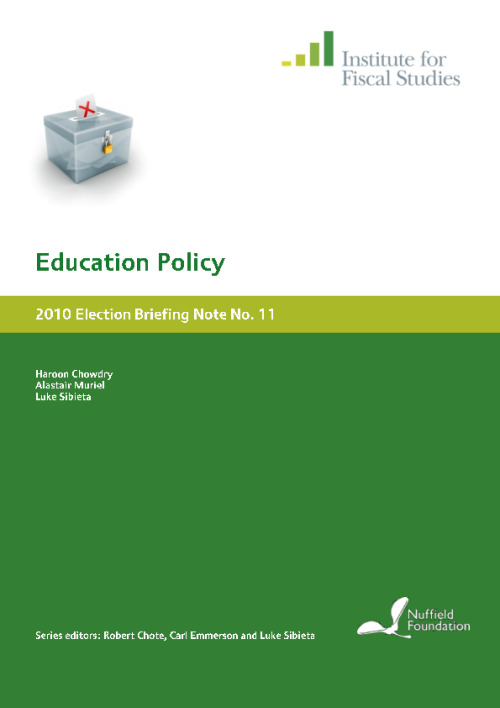Downloads

bn98.pdf
PDF | 1.09 MB
In his speech to the Labour Party conference in October 1996, Tony Blair famously stated that his three main priorities for government would be 'education, education, education'. A commitment to increasing education spending as a share of national income over the course of the parliament was then included in the Labour Party's general election manifestos in 1997, 2001 and 2005.
In this general election briefing note we examine trends in education spending under Labour as well as plans going forwards. We then discuss policy and key trends under Labour to date and policy proposals from the three main UK political parties in each of the following areas of education policy: early years; schools; and higher education. For the most part we focus on education policy in England only, though we do discuss trends in UK education spending in Section 2.
Authors

Research Fellow
Luke is a Research Fellow at the IFS and his general research interests include education policy, political economy and poverty and inequality.

Haroon Chowdry

Alastair Muriel
Report details
- DOI
- 10.1920/bn.ifs.2010.0098
- Publisher
- Institute for Fiscal Studies
Suggested citation
H, Chowdry and A, Muriel and L, Sibieta. (2010). Education policy. London: Institute for Fiscal Studies. Available at: https://ifs.org.uk/publications/education-policy (accessed: 30 June 2024).
More from IFS
Understand this issue

What is the two-child limit in benefits?
27 June 2024

What has been happening with university finances?
27 June 2024

Election Special: The big issues politicians haven't spoken about
25 June 2024
Policy analysis

Free breakfast clubs in schools: what Labour’s plans would mean for pupils and families
25 June 2024

How should we interpret parties’ public spending pledges this election?
23 June 2024

How would the parties’ tax and spending plans affect Scotland and Wales?
28 June 2024
Academic research

6th World Bank/IFS/ODI Public Finance Conference | Driving Progress: Public Finance and Structural Transformation

Economics of Childhood Nutrition Workshop

The intergenerational elasticity of earnings: Exploring the mechanisms
3 June 2024